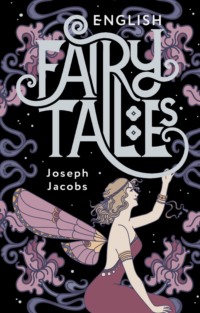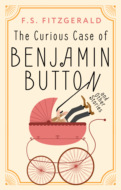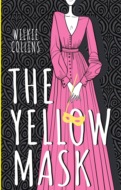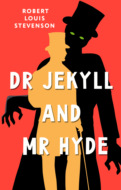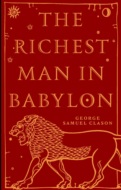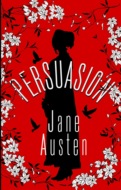Kitabı oku: «English Fairy Tales», sayfa 2
The Rose-tree
There was once upon a time a good man who had two children: a girl by a first wife, and a boy by the second. The girl was as white as milk, and her lips were like cherries. Her hair was like golden silk, and it hung to the ground. Her brother loved her dearly, but her wicked stepmother hated her. “Child,” said the stepmother one day, “go to the grocer's shop and buy me a pound of candles.” She gave her the money; and the little girl went, bought the candles, and started on her return. There was a stile to cross. She put down the candles whilst she got over the stile. Up came a dog and ran off with the candles.
She went back to the grocer's, and she got a second bunch. She came to the stile, set down the candles, and proceeded to climb over. Up came the dog and ran off with the candles.
She went again to the grocer's, and she got a third bunch; and just the same happened. Then she came to her stepmother crying, for she had spent all the money and had lost three bunches of candles.
The stepmother was angry, but she pretended not to mind the loss. She said to the child: “Come, lay your head on my lap that I may comb your hair.” So the little one laid her head in the woman's lap, who proceeded to comb the yellow silken hair. And when she combed the hair fell over her knees, and rolled right down to the ground.
Then the stepmother hated her more for the beauty of her hair; so she said to her, “I cannot part your hair on my knee, fetch a billet of wood.” So she fetched it. Then said the stepmother, “I cannot part your hair with a comb, fetch me an axe.” So she fetched it.
“Now,” said the wicked woman, “lay your head down on the billet whilst I part your hair.”
Well! she laid down her little golden head without fear; and whist! down came the axe, and it was off. So the mother wiped the axe and laughed.
Then she took the heart and liver of the little girl, and she stewed them and brought them into the house for supper. The husband tasted them and shook his head. He said they tasted very strangely. She gave some to the little boy, but he would not eat. She tried to force him, but he refused, and ran out into the garden, and took up his little sister, and put her in a box, and buried the box under a rose-tree; and every day he went to the tree and wept, till his tears ran down on the box.
One day the rose-tree flowered. It was spring, and there among the flowers was a white bird; and it sang, and sang, and sang like an angel out of heaven. Away it flew, and it went to a cobbler's shop, and perched itself on a tree hard by; and thus it sang,
“My wicked mother slew me,
My dear father ate me,
My little brother whom I love
Sits below, and I sing above
Stick, stock, stone dead.”
“Sing again that beautiful song,” asked the shoemaker. “If you will first give me those little red shoes you are making.” The cobbler gave the shoes, and the bird sang the song; then flew to a tree in front of a watchmaker's, and sang:
“My wicked mother slew me,
My dear father ate me,
My little brother whom I love
Sits below, and I sing above
Stick, stock, stone dead.”
“Oh, the beautiful song! sing it again, sweet bird,” asked the watchmaker. “If you will give me first that gold watch and chain in your hand.” The jeweller gave the watch and chain. The bird took it in one foot, the shoes in the other, and, after having repeated the song, flew away to where three millers were picking a millstone. The bird perched on a tree and sang:
“My wicked mother slew me,
My dear father ate me,
My little brother whom I love
Sits below, and I sing above
Stick!”
Then one of the men put down his tool and looked up from his work,
“Stock!”
Then the second miller's man laid aside his tool and looked up,
“Stone!”
Then the third miller's man laid down his tool and looked up,
“Dead!”
Then all three cried out with one voice: “Oh, what a beautiful song! Sing it, sweet bird, again.” “If you will put the millstone round my neck,” said the bird. The men did what the bird wanted and away to the tree it flew with the millstone round its neck, the red shoes in one foot, and the gold watch and chain in the other. It sang the song and then flew home. It rattled the millstone against the eaves of the house, and the stepmother said: “It thunders.” Then the little boy ran out to see the thunder, and down dropped the red shoes at his feet. It rattled the millstone against the eaves of the house once more, and the stepmother said again: “It thunders.” Then the father ran out and down fell the chain about his neck.
In ran father and son, laughing and saying, “See, what fine things the thunder has brought us!” Then the bird rattled the millstone against the eaves of the house a third time; and the stepmother said: “It thunders again, perhaps the thunder has brought something for me,” and she ran out; but the moment she stepped outside the door, down fell the millstone on her head; and so she died.
The Old Woman and Her Pig
An old woman was sweeping her house, and she found a little crooked sixpence. “What,” said she, “shall I do with this little sixpence? I will go to market, and buy a little pig.”
As she was coming home, she came to a stile: but the piggy wouldn't go over the stile.
She went a little further, and she met a dog. So she said to the dog: “Dog! bite pig; piggy won't go over the stile; and I shan't get home to-night.” But the dog wouldn't.
She went a little further, and she met a stick. So she said: “Stick! stick! beat dog! dog won't bite pig; piggy won't get over the stile; and I shan't get home to-night.” But the stick wouldn't.
She went a little further, and she met a fire. So she said: “Fire! fire! burn stick; stick won't beat dog; dog won't bite pig; piggy won't get over the stile; and I shan't get home to-night.” But the fire wouldn't.
She went a little further, and she met some water. So she said: “Water, water! quench fire; fire won't burn stick; stick won't beat dog; dog won't bite pig; piggy won't get over the stile; and I shan't get home to-night.” But the water wouldn't.
She went a little further, and she met an ox. So she said: “Ox! ox! drink water; water won't quench fire; fire won't burn stick; stick won't beat dog; dog won't bite pig; piggy won't get over the stile; and I shan't get home to-night.” But the ox wouldn't.
She went a little further, and she met a butcher. So she said: “Butcher! butcher! kill ox; ox won't drink water; water won't quench fire; fire won't burn stick; stick won't beat dog; dog won't bite pig; piggy won't get over the stile; and I shan't get home to-night.” But the butcher wouldn't.
She went a little further, and she met a rope. So she said: “Rope! rope! hang butcher; butcher won't kill ox; ox won't drink water; water won't quench fire; fire won't burn stick; stick won't beat dog; dog won't bite pig; piggy won't get over the stile; and I shan't get home to-night.” But the rope wouldn't.
She went a little further, and she met a rat. So she said: “Rat! rat! gnaw rope; rope won't hang butcher; butcher won't kill ox; ox won't drink water; water won't quench fire; fire won't burn stick; stick won't beat dog; dog won't bite pig; piggy won't get over the stile; and I shan't get home to-night.” But the rat wouldn't.
She went a little further, and she met a cat. So she said: “Cat! cat! kill rat; rat won't gnaw rope; rope won't hang butcher; butcher won't kill ox; ox won't drink water; water won't quench fire; fire won't burn stick; stick won't beat dog; dog won't bite pig; piggy won't get over the stile; and I shan't get home to-night.” But the cat said to her, “If you will go to yonder cow, and fetch me a saucer of milk, I will kill the rat.” So away went the old woman to the cow.
But the cow said to her: “If you will go to yonder hay-stack, and fetch me a handful of hay, I'll give you the milk.” So away went the old woman to the haystack and she brought the hay to the cow.
As soon as the cow had eaten the hay, she gave the old woman the milk; and away she went with it in a saucer to the cat.
As soon as the cat had lapped up the milk, the cat began to kill the rat; the rat began to gnaw the rope; the rope began to hang the butcher; the butcher began to kill the ox; the ox began to drink the water; the water began to quench the fire; the fire began to burn the stick; the stick began to beat the dog; the dog began to bite the pig; the little pig in a fright jumped over the stile, and so the old woman got home that night.
How Jack Went to Seek His Fortune
Once on a time there was a boy named Jack, and one morning he started to go and seek his fortune.
He hadn't gone very far before he met a cat.
“Where are you going, Jack?” said the cat.
“I am going to seek my fortune.”
“May I go with you?”
“Yes,” said Jack, “the more the merrier.”
So on they went, jiggelty-jolt, jiggelty-jolt.
They went a little further and they met a dog.
“Where are you going, Jack?” said the dog.
“I am going to seek my fortune.”
“May I go with you?”
“Yes,” said Jack, “the more the merrier.”
So on they went, jiggelty-jolt, jiggelty-jolt. They went a little further and they met a goat.
“Where are you going, Jack?” said the goat.
“I am going to seek my fortune.”
“May I go with you?”
“Yes,” said Jack, “the more the merrier.”
So on they went, jiggelty-jolt, jiggelty-jolt.
They went a little further and they met a bull.
“Where are you going, Jack?” said the bull.
“I am going to seek my fortune.”
“May I go with you?”
“Yes,” said Jack, “the more the merrier.”
So on they went, jiggelty-jolt, jiggelty-jolt.
They went a little further and they met a rooster.
“Where are you going, Jack?” said the rooster.
“I am going to seek my fortune.”
“May I go with you?”
“Yes,” said Jack, “the more the merrier.”
So on they went, jiggelty-jolt, jiggelty-jolt.
Well, they went on till it was about dark, and they began to think of some place where they could spend the night. About this time they came in sight of a house, and Jack told them to keep still while he went up and looked in through the window. And there were some robbers counting over their money. Then Jack went back and told them to wait till he gave the word, and then to make all the noise they could. So when they were all ready Jack gave the word, and the cat mewed, and the dog barked, and the goat bleated, and the bull bellowed, and the rooster crowed, and all together they made such a dreadful noise that it frightened the robbers all away.
And then they went in and took possession of the house. Jack was afraid the robbers would come back in the night, and so when it came time to go to bed he put the cat in the rocking-chair, and he put the dog under the table, and he put the goat upstairs, and he put the bull down cellar, and the rooster flew up on to the roof, and Jack went to bed.
By-and-by the robbers saw it was all dark and they sent one man back to the house to look after their money. Before long he came back in a great fright and told them his story.
“I went back to the house,” said he, “and went in and tried to sit down in the rocking-chair, and there was an old woman knitting, and she stuck her knitting-needles into me.” That was the cat, you know.
“I went to the table to look after the money and there was a shoemaker under the table, and he stuck his awl into me.” That was the dog, you know.
“I started to go upstairs, and there was a man up there threshing, and he knocked me down with his flail.” That was the goat, you know.
“I started to go down cellar, and there was a man down there chopping wood, and he knocked me up with his axe.” That was the bull, you know.
“But I shouldn't have minded all that if it hadn't been for that little fellow on top of the house, who kept a-hollering, 'Chuck him up to me-e! Chuck him up to me-e!'” Of course that was the cock-a-doodle-do.
Mr. Vinegar
Mr. and Mrs. Vinegar lived in a vinegar bottle. Now, one day, when Mr. Vinegar was from home, Mrs. Vinegar, who was a very good housewife, was busily sweeping her house, when an unlucky thump of the broom brought the whole house clitter-clatter, clitter-clatter, about her ears. In an agony of grief she rushed forth to meet her husband.
On seeing him she exclaimed, “Oh, Mr. Vinegar, Mr. Vinegar, we are ruined, I have knocked the house down, and it is all to pieces!” Mr. Vinegar then said: “My dear, let us see what can be done. Here is the door; I will take it on my back, and we will go forth to seek our fortune.”
They walked all that day, and at nightfall entered a thick forest. They were both very, very tired, and Mr. Vinegar said: “My love, I will climb up into a tree, drag up the door, and you shall follow.” He accordingly did so, and they both stretched their weary limbs on the door, and fell fast asleep.
In the middle of the night Mr. Vinegar was disturbed by the sound of voices underneath, and to his horror and dismay found that it was a band of thieves met to divide their booty.
“Here, Jack,” said one, “here's five pounds for you; here, Bill, here's ten pounds for you; here, Bob, here's three pounds for you.”
Mr. Vinegar could listen no longer; his terror was so great that he trembled and trembled, and shook down the door on their heads. Away scampered the thieves, but Mr. Vinegar dared not quit his retreat till broad daylight.
He then scrambled out of the tree, and went to lift up the door. What did he see but a number of golden guineas. “Come down, Mrs. Vinegar,” he cried; “come down, I say; our fortune's made, our fortune's made! Come down, I say.”
Mrs. Vinegar got down as fast as she could, and when she saw the money she jumped for joy. “Now, my dear,” said she, “I'll tell you what you shall do. There is a fair at the neighbouring town; you shall take these forty guineas and buy a cow. I can make butter and cheese, which you shall sell at market, and we shall then be able to live very comfortably.”
Mr. Vinegar joyfully agrees, takes the money, and off he goes to the fair. When he arrived, he walked up and down, and at length saw a beautiful red cow. It was an excellent milker, and perfect in every way. “Oh,” thought Mr. Vinegar, “if I had but that cow, I should be the happiest, man alive.”
So he offers the forty guineas for the cow, and the owner said that, as he was a friend, he'd oblige him. So the bargain was made, and he got the cow and he drove it backwards and forwards to show it.
By-and-by he saw a man playing the bagpipes – Tweedle-dum tweedle-dee. The children followed him about, and he appeared to be pocketing money on all sides. “Well,” thought Mr. Vinegar, “if I had but that beautiful instrument I should be the happiest man alive – my fortune would be made.”
So he went up to the man. “Friend,” says he, “what a beautiful instrument that is, and what a deal of money you must make.” “Why, yes,” said the man, “I make a great deal of money, to be sure, and it is a wonderful instrument.” “Oh!” cried Mr. Vinegar, “how I should like to possess it!” “Well,” said the man, “as you are a friend, I don't much mind parting with it; you shall have it for that red cow.” “Done!” said the delighted Mr. Vinegar. So the beautiful red cow was given for the bagpipes.
He walked up and down with his purchase; but it was in vain he tried to play a tune, and instead of pocketing pence, the boys followed him hooting, laughing, and pelting.
Poor Mr. Vinegar, his fingers grew very cold, and, just as he was leaving the town, he met a man with a fine thick pair of gloves. “Oh, my fingers are so very cold,” said Mr. Vinegar to himself. “Now if I had but those beautiful gloves I should be the happiest man alive.” He went up to the man, and said to him, “Friend, you seem to have a capital pair of gloves there.” “Yes, truly,” cried the man; “and my hands are as warm as possible this cold November day.” “Well,” said Mr. Vinegar, “I should like to have them.”. “What will you give?” said the man; “as you are a friend, I don't much mind letting you have them for those bagpipes.” “Done!” cried Mr. Vinegar. He put on the gloves, and felt perfectly happy as he trudged homewards.
At last he grew very tired, when he saw a man coming towards him with a good stout stick in his hand.
“Oh,” said Mr. Vinegar, “that I had but that stick! I should then be the happiest man alive.” He said to the man: “Friend! what a rare good stick you have got.” “Yes,” said the man; “I have used it for many a long mile, and a good friend it has been; but if you have a fancy for it, as you are a friend, I don't mind giving it to you for that pair of gloves.” Mr. Vinegar's hands were so warm, and his legs so tired, that he gladly made the exchange.
As he drew near to the wood where he had left his wife, he heard a parrot on a tree calling out his name: “Mr. Vinegar, you foolish man, you blockhead, you simpleton; you went to the fair, and laid out all your money in buying a cow. Not content with that, you changed it for bagpipes, on which you could not play, and which were not worth one-tenth of the money. You fool, you – you had no sooner got the bagpipes than you changed them for the gloves, which were not worth one-quarter of the money; and when you had got the gloves, you changed them for a poor miserable stick; and now for your forty guineas, cow, bagpipes, and gloves, you have nothing to show but that poor miserable stick, which you might have cut in any hedge.” On this the bird laughed and laughed, and Mr. Vinegar, falling into a violent rage, threw the stick at its head. The stick lodged in the tree, and he returned to his wife without money, cow, bagpipes, gloves, or stick, and she instantly gave him such a sound cudgelling that she almost broke every bone in his skin.
Nix Nought Nothing
There once lived a king and a queen as many a one has been. They were long married and had no children; but at last a baby-boy came to the queen when the king was away in the far countries. The queen would not christen the boy till the king came back, and she said, “We will just call him Nix Nought Nothing until his father comes home.” But it was long before he came home, and the boy had grown a nice little laddie. At length the king was on his way back; but he had a big river to cross, and there was a whirlpool, and he could not get over the water. But a giant came up to him, and said “I'll carry you over.” But the king said: “What's your pay?” “O give me Nix, Nought, Nothing, and I will carry you over the water on my back.” The king had never heard that his son was called Nix Nought Nothing, and so he said: “O, I'll give you that and my thanks into the bargain.” When the king got home again, he was very happy to see his wife again, and his young son. She told him that she had not given the child any name, but just Nix Nought Nothing, until he should come home again himself. The poor king was in a terrible case. He said: “What have I done? I promised to give the giant who carried me over the river on his back, Nix Nought Nothing.” The king and the queen were sad and sorry, but they said: “When the giant comes we will give him the hen-wife's boy; he will never know the difference.” The next day the giant came to claim the king's promise, and he sent for the hen-wife's boy; and the giant went away with the boy on his back. He travelled till he came to a big stone, and there he sat down to rest. He said,
“Hidge, Hodge, on my back, what time of day is that?”
The poor little boy said: “It is the time that my mother, the hen-wife, takes up the eggs for the queen's breakfast.”
The Giant was very angry, and dashed the boy's head on the stone and killed him.
So he went back in a tower of a temper and this time they gave him the gardener's boy. He went off with him on his back till they got to the stone again when the giant sat down to rest. And he said:
“Hidge, Hodge, on my back, what time of day do you make that?”
The gardener's boy said: “Sure it's the time that my mother takes up the vegetables for the queen's dinner.” Then the giant was right wild and dashed his brains out on the stone.
Then the giant went back to the king's house in a terrible temper and said he would destroy them all if they did not give him Nix Nought Nothing this time. They had to do it; and when he came to the big stone, the giant said: “What time of day is that?” Nix Nought Nothing said: “It is the time that my father the king will be sitting down to supper.” The giant said: “I've got the right one now;” and took Nix Nought Nothing to his own house and brought him up till he was a man.
The giant had a bonny daughter, and she and the lad grew very fond of each other. The giant said one day to Nix Nought Nothing: “I've work for you to-morrow. There is a stable seven miles long and seven miles broad, and it has not been cleaned for seven years, and you must clean it to-morrow, or I will have you for my supper.”
The giant's daughter went out next morning with the lad's breakfast, and found him in a terrible state, for always as he cleaned out a bit, it just fell in again. The giant's daughter said she would help him, and she cried all the beasts in the field, and all the fowls of the air, and in a minute they all came, and carried away everything that was in the stable and made it all clean before the giant came home. He said: “Shame on the wit that helped you; but I have a worse job for you to-morrow.” Then he said to Nix Nought Nothing: “There's a lake seven miles long, and seven miles deep, and seven miles broad, and you must drain it to-morrow by nightfall, or else I'll have you for my supper.” Nix Nought Nothing began early next morning and tried to lave the water with his pail, but the lake was never getting any less, and he didn't know what to do; but the giant's daughter called on all the fish in the sea to come and drink the water, and very soon they drank it dry. When the giant saw the work done he was in a rage, and said: “I've a worse job for you to-morrow; there is a tree, seven miles high, and no branch on it, till you get to the top, and there is a nest with seven eggs in it, and you must bring down all the eggs without breaking one, or else I'll have you for my supper.” At first the giant's daughter did not know how to help Nix Nought Nothing; but she cut off first her fingers and then her toes, and made steps of them, and he clomb the tree and got all the eggs safe till he came just to the bottom, and then one was broken. So they determined to run away together and after the giant's daughter had tidied up her hair a bit and got her magic flask they set out together as fast as they could run. And they hadn't got but three fields away when they looked back and saw the giant walking along at top speed after them. “Quick, quick,” called out the giant's daughter, “take my comb from my hair and throw it down.” Nix Nought Nothing took her comb from her hair and threw it down, and out of every one of its prongs there sprung up a fine thick briar in the way of the giant. You may be sure it took him a long time to work his way through the briar bush and by the time he was well through Nix Nought Nothing and his sweetheart had run on a tidy step away from him. But he soon came along after them and was just like to catch 'em up when the giant's daughter called out to Nix Nought Nothing, “Take my hair dagger and throw it down, quick, quick.” So Nix Nought Nothing threw down the hair dagger and out of it grew as quick as lightning a thick hedge of sharp razors placed criss-cross. The giant had to tread very cautiously to get through all this and meanwhile the young lovers ran on, and on, and on, till they were nearly out of sight. But at last the giant was through, and it wasn't long before he was like to catch them up. But just as he was stretching out his hand to catch Nix Nought Nothing his daughter took out her magic flask and dashed it on the ground. And as it broke out of it welled a big, big wave that grew, and that grew, till it reached the giant's waist and then his neck, and when it got to his head, he was drowned dead, and dead, and dead indeed. So he goes out of the story.
But Nix Nought Nothing fled on till where do you think they came to? Why, to near the castle of Nix Nought Nothing's father and mother. But the giant's daughter was so weary that she couldn't move a step further. So Nix Nought Nothing told her to wait there while he went and found out a lodging for the night. And he went on towards the lights of the castle, and on the way he came to the cottage of the hen-wife whose boy had had his brains dashed out by the giant. Now she knew Nix Nought Nothing in a moment, and hated him because he was the cause of her son's death. So when he asked his way to the castle she put a spell upon him, and when he got to the castle, no sooner was he let in than he fell down dead asleep upon a bench in the hall. The king and queen tried all they could do to wake him up, but all in vain. So the king promised that if any lady could wake him up she should marry him. Meanwhile the giant's daughter was waiting and waiting for him to come back. And she went up into a tree to watch for him. The gardener's daughter, going to draw water in the well, saw the shadow of the lady in the water and thought it was herself, and said; “If I'm so bonny, if I'm so brave, why do you send me to draw water?” So she threw down her pail and went to see if she could wed the sleeping stranger. And she went to the hen-wife, who taught her an unspelling catch which would keep Nix Nought Nothing awake as long as the gardener's daughter liked. So she went up to the castle and sang her catch and Nix Nought Nothing was wakened for a bit and they promised to wed him to the gardener's daughter. Meanwhile the gardener went down to draw water from the well and saw the shadow of the lady in the water. So he looks up and finds her, and he brought the lady from the tree, and led her into his house. And he told her that a stranger was to marry his daughter, and took her up to the castle and showed her the man: and it was Nix Nought Nothing asleep in a chair. And she saw him, and cried to him: “Waken, waken, and speak to me!” But he would not waken, and soon she cried:
“I cleaned the stable, I laved the lake, and I clomb the tree,
And all for the love of thee,
And thou wilt not waken and speak to me.”
The king and the queen heard this, and came to the bonny young lady, and she said:
“I cannot get Nix Nought Nothing to speak to me for all that I can do.”
Then were they greatly astonished when she spoke of Nix Nought Nothing, and asked where he was, and she said: “He that sits there in the chair.” Then they ran to him and kissed him and called him their own dear son; so they called for the gardener's daughter and made her sing her charm, and he wakened, and told them all that the giant's daughter had done for him, and of all her kindness. Then they took her in their arms and kissed her, and said she should now be their daughter, for their son should marry her. But they sent for the hen-wife and put her to death. And they lived happy all their days.
Ücretsiz ön izlemeyi tamamladınız.
